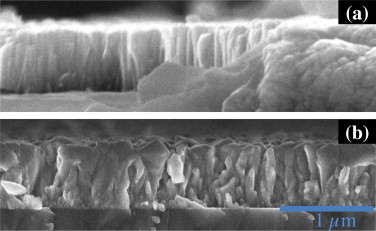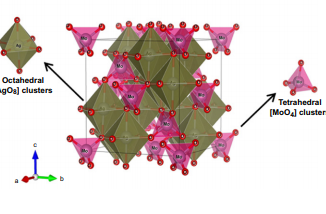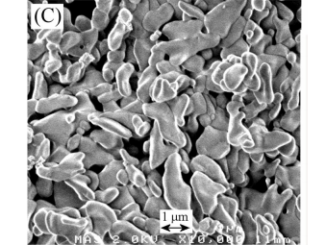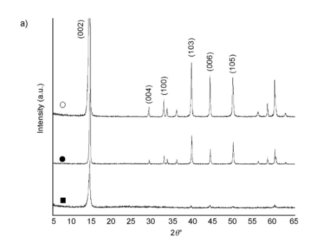
Growth evolution of self-textured ZnO films deposited by magnetron sputtering at low temperatures
Abstract: In this work, the evolution of the surface morphology of ZnO thin films deposited by reactive RF magnetron sputtering has been investigated using atomic force microscopy (AFM) and X-ray diffraction (XRD). All AFM images of the films were analyzed using scaling concepts. To study the growth evolution, different ZnO films with thicknesses of up to 1270 nm were deposited at temperatures of 100 and 250 °C. For the films grown at 100 °C, AFM data show that the lateral length ξ evolves continuously while the temporal evolution of the root mean square roughness σ presents two distinct regimes. Early during the depositions, the morphology of the ZnO films is mainly characterized by granular structures. Beyond thickness of about 600 nm, pyramid-like structures with {214} crystallographic facets start to develop. For the films grown at 250 °C, however, only one growth regime was observed and for the thicker films, the surface morphology consisted of polygonal structures. For the films grown at 100 °C, the growth exponents, β, and the exponent defining the evolution of the characteristic wavelength of the surface, p, were β1 = 0.70 ± 0.02 and β2 = 0.26 ± 0.2; and p = 0.2 ± 0.04. For the films grown at 250 °C, the exponent values were β = 0.78 ± 0.02 and p = 0.32 ± 0.05. These values of the exponents indicate the occurrence of surface mechanisms, such as shadowing and surface diffusion, as well as facet stabilization at 100 °C. For the films grown at 250 °C, however, structural misorientation during growth also plays an important role.
Author(s): Bortoleto, J. R. R.; Chaves, M.; Rosa, A. M.; et al.
Applied Surface Science
Volume: 334 Pages: 210-215 Published: 2015
DOI: https://doi.org/10.1016/j.apsusc.2014.10.015
PDF: Growth evolution of self-textured ZnO films deposited by magnetron sputtering at low temperatures




